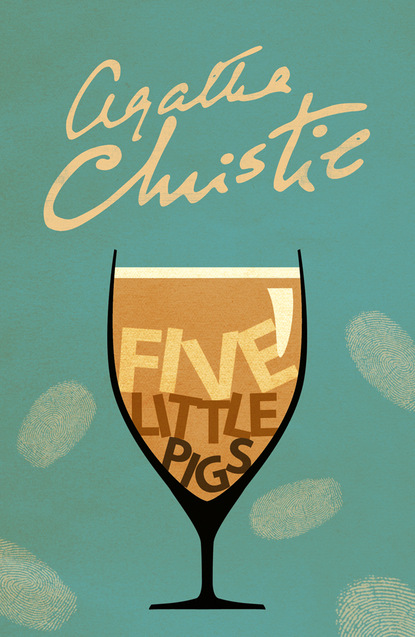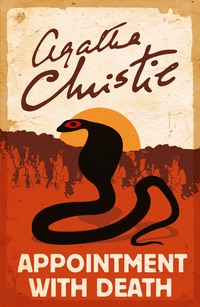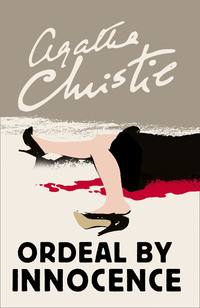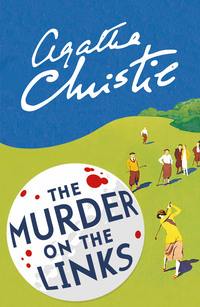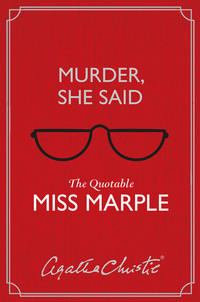
Полная версия
Hickory Dickory Dock


Hickory Dickory Dock

Published by HarperCollinsPublishers Ltd
1 London Bridge Street
London SE1 9GF
www.harpercollins.co.uk
First published in Great Britain by
Collins 1955
Agatha Christie® Poirot® Hickory Dickory Dock™
Copyright © 1955 Agatha Christie Mallowan. All rights reserved
www.agathachristie.com
Cover layout design © HarperCollinsPublishers Ltd 2015
Title lettering by Ghost Design
Cover photograph © GS/Gallery Stock
Agatha Christie asserts the moral right to be identified as the author of this work.
A catalogue copy of this book is available from the British Library.
This novel is entirely a work of fiction. The names, characters and incidents portrayed in it are the work of the author’s imagination. Any resemblance to actual persons, living or dead, events or localities is entirely coincidental.
All rights reserved under International and Pan-American Copyright Conventions. By payment of the required fees, you have been granted the non-exclusive, non-transferable right to access and read the text of this e-book on screen. No part of this text may be reproduced, transmitted, down-loaded, decompiled, reverse engineered, or stored in or introduced into any information storage and retrieval system, in any form or by any means, whether electronic or mechanical, now known or hereinafter invented, without the express written permission of HarperCollins.
Source ISBN: 9780008129552
Ebook Edition © May 2015 ISBN: 9780007422388
Version: 2017-04-13
Contents
Cover
Title Page
Copyright
CHAPTER 1
CHAPTER 2
CHAPTER 3
CHAPTER 4
CHAPTER 5
CHAPTER 6
CHAPTER 7
CHAPTER 8
CHAPTER 9
CHAPTER 10
CHAPTER 11
CHAPTER 12
CHAPTER 13
CHAPTER 14
CHAPTER 15
CHAPTER 16
CHAPTER 17
CHAPTER 18
CHAPTER 19
CHAPTER 20
CHAPTER 21
CHAPTER 22
CHAPTER 23
Also by Agatha Christie
About the Publisher
CHAPTER 1
Hercule Poirot frowned.
‘Miss Lemon,’ he said.
‘Yes, M. Poirot?’
‘There are three mistakes in this letter.’
His voice held incredulity. For Miss Lemon, that hideous and efficient woman, never made mistakes. She was never ill, never tired, never upset, never inaccurate. For all practical purposes, that is to say, she was not a woman at all. She was a machine—the perfect secretary. She knew everything, she coped with everything. She ran Hercule Poirot’s life for him, so that it, too, functioned like a machine. Order and method had been Hercule Poirot’s watchwords from many years ago. With George, his perfect manservant, and Miss Lemon, his perfect secretary, order and method ruled supreme in his life. Now that crumpets were baked square as well as round, he had nothing about which to complain.
And yet, this morning, Miss Lemon had made three mistakes in typing a perfectly simple letter, and moreover, had not even noticed those mistakes. The stars stood still in their courses!
Hercule Poirot held out the offending document. He was not annoyed, he was merely bewildered. This was one of the things that could not happen—but it had happened!
Miss Lemon took the letter. She looked at it. For the first time in his life, Poirot saw her blush; a deep ugly unbecoming flush that dyed her face right up to the roots of her strong grizzled hair.
‘Oh, dear,’ she said. ‘I can’t think how—at least, I can. It’s because of my sister.’
‘Your sister?’
Another shock. Poirot had never conceived of Miss Lemon’s having a sister. Or, for that matter, having a father, mother, or even grandparents. Miss Lemon, somehow, was so completely machine made—a precision instrument so to speak—that to think of her having affections, or anxieties, or family worries, seemed quite ludicrous. It was well known that the whole of Miss Lemon’s heart and mind was given, when she was not on duty, to the perfection of a new filing system which was to be patented and bear her name.
‘Your sister?’ Hercule Poirot repeated, therefore, with an incredulous note in his voice.
Miss Lemon nodded a vigorous assent.
‘Yes,’ she said, ‘I don’t think I’ve ever mentioned her to you. Practically all her life has been spent in Singapore. Her husband was in the rubber business there.’
Hercule Poirot nodded understandingly. It seemed to him appropriate that Miss Lemon’s sister should have spent most of her life in Singapore. That was what places like Singapore were for. The sisters of women like Miss Lemon married men in Singapore, so that the Miss Lemons of this world could devote themselves with machine-like efficiency to their employers’ affairs (and of course to the invention of filing systems in their moments of relaxation).
‘I comprehend,’ he said. ‘Proceed.’
Miss Lemon proceeded.
‘She was left a widow four years ago. No children. I managed to get her fixed up in a very nice little flat at quite a reasonable rent—’
(Of course Miss Lemon would manage to do just that almost impossible thing.)
‘She is reasonably well off—though money doesn’t go as far as it did, but her tastes aren’t expensive and she has enough to be quite comfortable if she is careful.’
Miss Lemon paused and then continued:
‘But the truth is, of course, she was lonely. She had never lived in England and she’d got no old friends or cronies and of course she had a lot of time on her hands. Anyway, she told me about six months ago that she was thinking of taking up this job.’
‘Job?’
‘Warden, I think they call it—or matron—of a hostel for students. It was owned by a woman who was partly Greek and she wanted someone to run it for her. Manage the catering and see that things went smoothly. It’s an old-fashioned roomy house—in Hickory Road, if you know where that is.’ Poirot did not. ‘It used to be a superior neighbourhood once, and the houses are well built. My sister was to have very nice accommodation, bedroom and sitting-room and a tiny bath kitchenette of her own—’
Miss Lemon paused. Poirot made an encouraging noise. So far this did not seem at all like a tale of disaster.
‘I wasn’t any too sure about it myself, but I saw the force of my sister’s arguments. She’s never been one to sit with her hands crossed all day long and she’s a very practical woman and good at running things—and of course it wasn’t as though she were thinking of putting money into it or anything like that. It was purely a salaried position—not a high salary, but she didn’t need that, and there was no hard physical work. She’s always been fond of young people and good with them, and having lived in the East so long she understands racial differences and people’s susceptibilities. Because these students at the hostel are of all nationalities; mostly English, but some of them actually black, I believe.’
‘Naturally,’ said Hercule Poirot.
‘Half the nurses in our hospitals seem to be black nowadays,’ said Miss Lemon doubtfully, ‘and I understand much pleasanter and more attentive than the English ones. But that’s neither here nor there. We talked the scheme over and finally my sister moved in. Neither she nor I cared very much for the proprietress, Mrs Nicoletis, a woman of very uncertain temper, sometimes charming and sometimes, I’m sorry to say, quite the reverse—and both cheese-paring and impractical. Still, naturally, if she’d been a thoroughly competent woman, she wouldn’t have needed any assistance. My sister is not one to let people’s tantrums and vagaries worry her. She can hold her own with anyone and she never stands any nonsense.’
Poirot nodded. He felt a vague resemblance to Miss Lemon showing in this account of Miss Lemon’s sister—a Miss Lemon softened as it were by marriage and the climate of Singapore, but a woman with the same hard core of sense.
‘So your sister took the job?’ he asked.
‘Yes, she moved into 26 Hickory Road about six months ago. On the whole, she liked her work there and found it interesting.’
Hercule Poirot listened. So far the adventure of Miss Lemon’s sister had been disappointingly tame.
‘But for some time now she’s been badly worried. Very badly worried.’
‘Why?’
‘Well, you see, M. Poirot, she doesn’t like the things that are going on.’
‘There are students there of both sexes?’ Poirot inquired delicately.
‘Oh no, M. Poirot, I don’t mean that! One is always prepared for difficulties of that kind, one expects them! No, you see, things have been disappearing.’
‘Disappearing?’
‘Yes. And such odd things… And all in rather an unnatural way.’
‘When you say things have been disappearing, you mean things have been stolen?’
‘Yes.’
‘Have the police been called in?’
‘No. Not yet. My sister hopes that it may not be necessary. She is fond of these young people—of some of them, that is—and she would very much prefer to straighten things out by herself.’
‘Yes,’ said Poirot thoughtfully. ‘I can quite see that. But that does not explain, if I may say so, your own anxiety which I take to be a reflex of your sister’s anxiety.’
‘I don’t like the situation, M. Poirot. I don’t like it at all. I cannot help feeling that something is going on which I do not understand. No ordinary explanation seems quite to cover the facts—and I really cannot imagine what other explanation there can be.’
Poirot nodded thoughtfully.
Miss Lemon’s Heel of Achilles had always been her imagination. She had none. On questions of fact she was invincible. On questions of surmise, she was lost. Not for her the state of mind of Cortez’s men upon the peak of Darien.
‘Not ordinary petty thieving? A kleptomaniac, perhaps?’
‘I do not think so. I read up the subject,’ said the conscientious Miss Lemon, ‘in the Encyclopaedia Britannica and in a medical work. But I was not convinced.’
Hercule Poirot was silent for a minute and a half.
Did he wish to embroil himself in the troubles of Miss Lemon’s sister and the passions and grievances of a polyglot hostel? But it was very annoying and inconvenient to have Miss Lemon making mistakes in typing his letters. He told himself that if he were to embroil himself in the matter, that would be the reason. He did not admit to himself that he had been rather bored of late and that the very triviality of the business attracted him.
‘“The parsley sinking into the butter on a hot day,”’ he murmured to himself.
‘Parsley? Butter?’ Miss Lemon looked startled.
‘A quotation from one of your classics,’ he said. ‘You are acquainted, no doubt, with the Adventures, to say nothing of the Exploits, of Sherlock Holmes.’
‘You mean these Baker Street societies and all that,’ said Miss Lemon. ‘Grown men being so silly! But there, that’s men all over. Like the model railways they go on playing with. I can’t say I’ve ever had time to read any of the stories. When I do get time for reading, which isn’t very often, I prefer an improving book.’
Hercule Poirot bowed his head gracefully.
‘How would it be, Miss Lemon, if you were to invite your sister here for some suitable refreshment—afternoon tea, perhaps? I might be able to be of some slight assistance to her.’
‘That’s very kind of you, M. Poirot. Really very kind indeed. My sister is always free in the afternoons.’
‘Then shall we say tomorrow, if you can arrange it?’
And in due course, the faithful George was instructed to provide a meal of square crumpets richly buttered, symmetrical sandwiches, and other suitable components of a lavish English afternoon tea.
CHAPTER 2
Miss Lemon’s sister, whose name was Mrs Hubbard, had a definite resemblance to her sister. She was a good deal yellower of skin, she was plumper, her hair was more frivolously done, and she was less brisk in manner, but the eyes that looked out of a round and amiable countenance were the same shrewd eyes that gleamed through Miss Lemon’s pince-nez.
‘This is very kind of you, I’m sure, M. Poirot,’ she said. ‘Very kind. And such a delicious tea, too. I’m sure I’ve eaten far more than I should—well, perhaps just one more sandwich—tea? Well, just half a cup.’
‘First,’ said Poirot, ‘we make the repast—afterwards we get down to business.’
He smiled at her amiably and twirled his moustache, and Mrs Hubbard said:
‘You know, you’re exactly like I pictured you from Felicity’s description.’
After a moment’s startled realisation that Felicity was the severe Miss Lemon’s Christian name, Poirot replied that he should have expected no less given Miss Lemon’s efficiency.
‘Of course,’ said Mrs Hubbard absently, taking a second sandwich, ‘Felicity has never cared for people. I do. That’s why I’m so worried.’
‘Can you explain to me exactly what does worry you?’
‘Yes, I can. It would be natural enough for money to be taken—small sums here and there. And if it were jewellery that’s quite straightforward too—at least, I don’t mean straightforward, quite the opposite—but it would fit in—with kleptomania or dishonesty. But I’ll just read you a list of the things that have been taken, that I’ve put down on paper.’
Mrs Hubbard opened her bag and took out a small notebook.
Evening shoe (one of a new pair)
Bracelet (costume jewellery)
Diamond ring (found in plate of soup)
Powder compact
Lipstick
Stethoscope
Ear-rings
Cigarette lighter
Old flannel trousers
Electric light bulbs
Box of chocolates
Silk scarf (found cut to pieces)
Rucksack (ditto)
Boracic powder
Bath salts
Cookery book
Hercule Poirot drew in a long deep breath.
‘Remarkable,’ he said, ‘and quite—quite fascinating.’
He was entranced. He looked from the severe disapproving face of Miss Lemon to the kindly, distressed face of Mrs Hubbard.
‘I congratulate you,’ he said warmly to the latter.
She looked startled.
‘But why, M. Poirot?’
‘I congratulate you on having such a unique and beautiful problem.’
‘Well, perhaps it makes sense to you, M. Poirot, but—’
‘It does not make sense at all. It reminds me of nothing so much as a round game I was recently persuaded to play by some young friends during the Christmas season. It was called, I understand, the Three Horned Lady. Each person in turn uttered the following phrase, “I went to Paris and bought—” adding some article. The next person repeated that and added a further article and the object of the game was to memorise in their proper order the articles thus enumerated, some of them, I may say, of a most monstrous and ridiculous nature. A piece of soap, a white elephant, a gate-legged table and a Muscovy duck were, I remember, some of the items. The difficulty of the memorisation lay, of course, in the totally unrelated nature of the objects—the lack of sequence, so to speak. As in the list you have just shown me. By the time that, say, twelve objects had been mentioned, to enumerate them in their proper order became almost impossible. A failure to do so resulted in a paper horn being handed to the competitor and he or she had to continue the recitation next time in the terms, “I, a one horned lady, went to Paris,” etc. After three horns had been acquired, retirement was compulsory, the last left in was the winner.’
‘I’m sure you were the winner, M. Poirot,’ said Miss Lemon, with the faith of a loyal employee.
Poirot beamed.
‘That was, in fact, so,’ he said. ‘To even the most haphazard assembly of objects one can bring order, and with a little ingenuity, sequence, so to speak. That is: one says to oneself mentally, “With a piece of soap I wash the dirt from a large white marble elephant which stands on a gate-legged table”—and so on.’
Mrs Hubbard said respectfully: ‘Perhaps you could do the same thing with the list of things I’ve given you.’
‘Undoubtedly I could. A lady with her right shoe on, puts a bracelet on her left arm. She then puts on powder and lipstick and goes down to dinner and drops her ring in the soup, and so on—I could thus commit your list to memory—but that is not what we are seeking. Why was such a haphazard collection of things stolen? Is there any system behind it? Some fixed idea of any kind? We have here primarily a process of analysis. The first thing to do is to study the list of objects very carefully.’
There was a silence whilst Poirot applied himself to study. Mrs Hubbard watched him with the rapt attention of a small boy watching a conjurer, waiting hopefully for a rabbit or at least streams of coloured ribbons to appear. Miss Lemon, unimpressed, withdrew into consideration of the finer points of her filing system.
When Poirot finally spoke, Mrs Hubbard jumped.
‘The first thing that strikes me is this,’ said Poirot. ‘Of all these things that disappeared, most of them were of small value (some quite negligible) with the exception of two—a stethoscope and a diamond ring. Leaving the stethoscope aside for a moment, I should like to concentrate on the ring. You say a valuable ring—how valuable?’
‘Well, I couldn’t say exactly, M. Poirot. It was a solitaire diamond, with a cluster of small diamonds top and bottom. It had been Miss Lane’s mother’s engagement ring, I understand. She was most upset when it was missing, and we were all relieved when it turned up the same evening in Miss Hobhouse’s plate of soup. Just a nasty practical joke, we thought.’
‘And so it may have been. But I myself consider that its theft and return are significant. If a lipstick, or a powder compact or a book are missing—it is not sufficient to make you call in the police. But a valuable diamond ring is different. There is every chance that the police will be called in. So the ring is returned.’
‘But why take it if you’re going to return it?’ said Miss Lemon, frowning.
‘Why indeed,’ said Poirot. ‘But for the moment we will leave the questions. I am engaged now on classifying these thefts, and I am taking the ring first. Who is this Miss Lane from whom it was stolen?’
‘Patricia Lane? She’s a very nice girl. Going in for a what-do-you-call-it, a diploma in history or archaeology or something.’
‘Well off?’
‘Oh no. She’s got a little money of her own, but she’s very careful always. The ring, as I say, belonged to her mother. She has one or two nice bits of jewellery but she doesn’t have many new clothes, and she’s given up smoking lately.’
‘What is she like? Describe her to me in your own words.’
‘Well, she’s sort of betwixt and between in colouring. Rather washed-out looking. Quiet and ladylike, but not much spirit or life to her. What you’d call rather a—well, an earnest type of girl.’
‘And the ring turned up again in Miss Hobhouse’s plate of soup. Who is Miss Hobhouse?’
‘Valerie Hobhouse? She’s a clever dark girl with rather a sarcastic way of talking. She works in a beauty parlour. Sabrina Fair—I suppose you have heard of it.’
‘Are these two girls friendly?’
Mrs Hubbard considered.
‘I should say so—yes. They don’t have much to do with each other. Patricia gets on well with everybody, I should say, without being particularly popular or anything like that. Valerie Hobhouse has her enemies, her tongue being what it is—but she’s got quite a following too, if you know what I mean.’
‘I think I know,’ said Poirot.
So Patricia Lane was nice but dull, and Valerie Hobhouse had personality. He resumed his study of the list of thefts.
‘What is so intriguing is all the different categories represented here. There are the small trifles that would tempt a girl who was both vain and hard-up, the lipstick, the costume jewellery, a powder compact—bath salts—the box of chocolates, perhaps. Then we have the stethoscope, a more likely theft for a man who would know just where to sell it or pawn it. Who did it belong to?’
‘It belonged to Mr Bateson—he’s a big friendly young man.’
‘A medical student?’
‘Yes.’
‘Was he very angry?’
‘He was absolutely livid, M. Poirot. He’s got one of those flaring up tempers—say anything at the time, but it’s soon over. He’s not the sort who’d take kindly to having his things pinched.’
‘Does anyone?’
‘Well, there’s Mr Gopal Ram, one of our Indian students. He smiles at everything. He waves his hand and says material possessions do not matter—’
‘Has anything been stolen from him?’
‘No.’
‘Ah! Who did the flannel trousers belong to?’
‘Mr McNabb. Very old they were, and anyone else would say they were done for, but Mr McNabb is very attached to his old clothes and he never throws anything away.’
‘So we have come to the things that it would seem were not worth stealing—old flannel trousers, electric light bulbs, boracic powder, bath salts—a cookery book. They may be important, more likely they are not. The boracic was probably removed by error, someone may have removed a dead bulb and intended to replace it, but forgot—the cookery book may have been borrowed and not returned. Some charwoman may have taken away the trousers.’
‘We employ two very reliable cleaning women. I’m sure they would neither of them have done such a thing without asking first.’
‘You may be right. Then there is the evening shoe, one of a new pair, I understand? Who do they belong to?’
‘Sally Finch. She’s an American girl studying over here on a Fulbright scholarship.’
‘Are you sure that the shoe has not simply been mislaid? I cannot conceive what use one shoe could be to anyone.’
‘It wasn’t mislaid, M. Poirot. We all had a terrific hunt. You see Miss Finch was going out to a party in what she calls “formal dress”—evening dress to us—and the shoes were really vital—they were her only evening ones.’
‘It caused her inconvenience—and annoyance—yes…yes, I wonder. Perhaps there is something there…’
He was silent for a moment or two and then went on.
‘And there are two more items—a rucksack cut to pieces and a silk scarf in the same state. Here we have something that is neither vanity, nor profit—instead we have something that is deliberately vindictive. Who did the rucksack belong to?’




